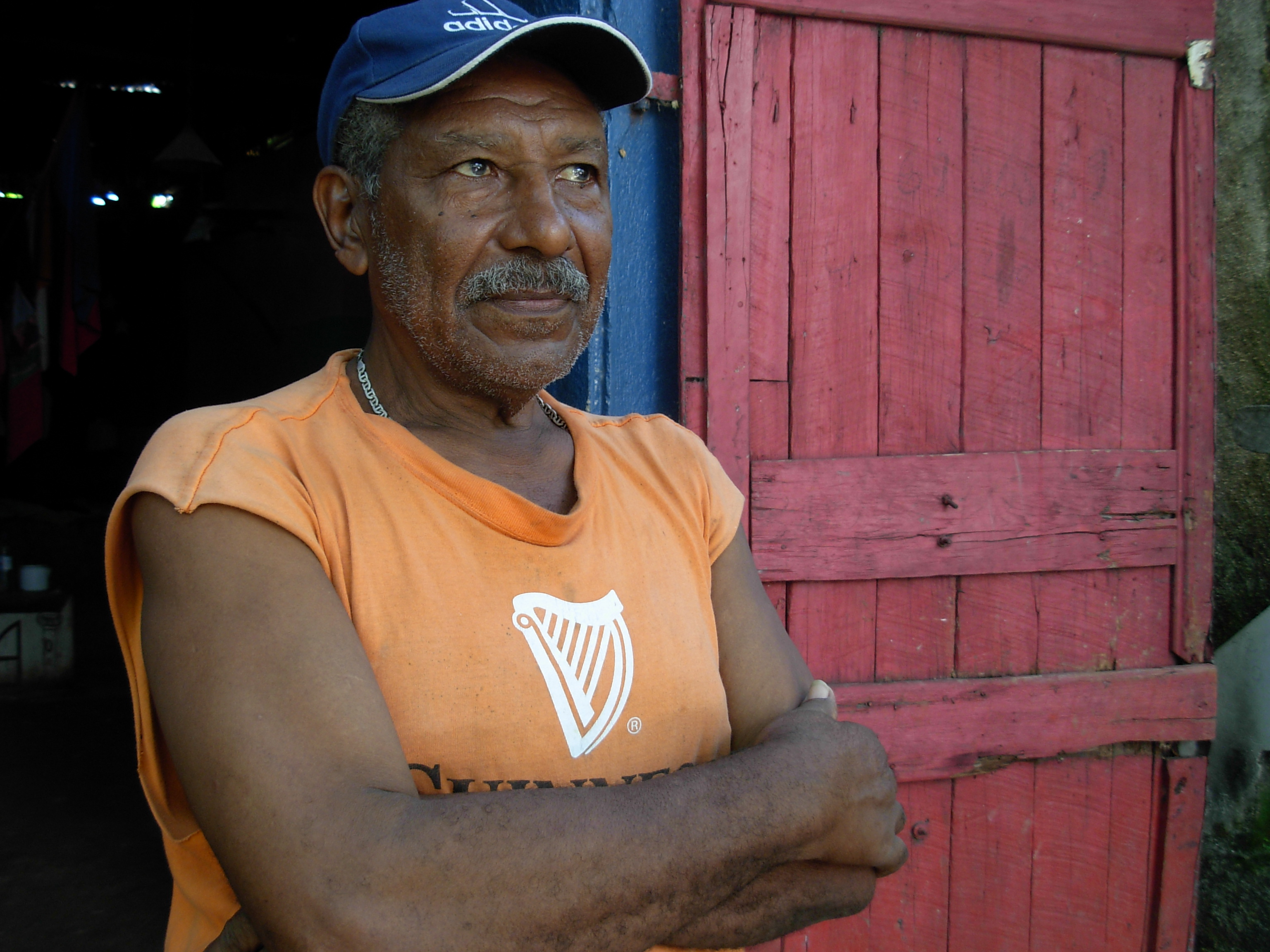Clement Bouvais, a Haitian voodoo priest, presides over the Temple de Nos Ancetres (Temple of Our Ancestors), a windowless wooden structure painted in fading shades of blue and red on a narrow side street in the southern coastal town of Jacmel.
It is dusk; the mosquitoes are biting and rats dart across the temple's dirt floor, but Bouvais, dressed appropriately for the tropical heat in shorts and a t-shirt, does not appear to notice.
He is explaining that AIDS is not a new disease in Haiti. "It's a bad thing that just wasn't discovered before, and didn't have a name," he insists, speaking in Creole through a translator.
"If two people have a fight, one person takes some mystical medicine; they drink it in the name of the other person and that person gets AIDS. It's a virus, we agree with that, but for us it already existed."
It is no surprise that Bouvais easily reconciles his mystical explanation of AIDS with the concept that it is caused by a virus. Voodoo is a melding of the beliefs and practices of West African slaves brought to the Caribbean island in the 1500s with the Roman Catholicism of their owners, and has co-existed with organised religion in Haiti for centuries.
Although most Haitians describe themselves as Catholic, about 70 percent also believe in voodoo and, particularly in rural areas, a houngan is usually consulted first when someone falls ill.
The cost and uneven distribution of public health services in Haiti also mean the nearest health facility may be difficult to reach and while HIV/AIDS testing and antiretroviral (ARV) treatment is free, most other services and drugs have to be paid for.
"You can't ignore the role [houngans] play," said Rose Anne Auguste, who runs APROSIFA, a community-based organisation that supports HIV-positive women in the capital, Port-au-Prince. "Most people consult both [a houngan and a medical doctor], even if they're Catholic or Protestant."
APROSIFA is among a number of AIDS organisations in Haiti that have recognised the need to include houngans in their HIV/AIDS programmes. An estimated 2.2 percent of Haiti's population of 9.2 million are living with HIV according to UNAIDS.
Through workshops, the organisation trains voodoo priests to identify the symptoms of HIV infection and encourage patients to go to a clinic for testing and treatment.
Catholic Relief Services (CRS), an international NGO, has also had some success in educating houngans about possible negative reactions when herbal remedies and antiretroviral (ARV) drugs are taken together, and the HIV risks associated with certain voodoo rituals.
"There are rituals where they use a razor to mark some parts of the body and they were using the same razor for 15 or 20 people," said William Canny, who heads the CRS operations in Haiti. "Now they have one razor for each person, so education has helped."
The belief that HIV is an illness sent by enemies or bad spirits, rather than being an infectious disease, has major implications not only for HIV prevention efforts but also for treatment.
Marie Elsie Joseph, 47, who has lived with HIV for the past 18 years in one of the villages in the mountains that surround Jacmel, counsels others in her village that she suspects may be infected to seek testing and treatment at the hospital in Jacmel.
"But most people always go first to the voodoo priest," she told IRIN/PlusNews. "Before I explain it, they always think HIV is a zombie or spirit that's been sent to them."
Dr Michel Bertrand, who coordinates HIV/AIDS services at Jacmel's St Michel Hospital, said patients who believed that HIV infection was caused by magic often came for help dangerously late.
The clinic has a psychologist and a social worker to educate patients about HIV and advise them not to take ARVs and herbal concoctions at the same time, but Bertrand said: "Sometimes you can't convince someone who has believed for years that they've been cursed by a bad spirit to stop believing it. You just have to convince them that the medication works."
Bertrand and his team have enlisted local voodoo priests to help identify people living with the virus and to follow up patients who have missed appointments.
As night falls in Jacmel, Bouvais is reluctant to discuss his methods for treating patients with HIV. "For me, HIV is something very difficult and dangerous," he says. "I would never say I can treat it, but I can relieve it a bit."
| Read more: | |
"I gave them a gallon of remedy and they came back three more times. After three months, they'd changed, they'd gained weight. I asked them to test and they were still HIV positive, but they were much better."
ks/he/oa
This article was produced by IRIN News while it was part of the United Nations Office for the Coordination of Humanitarian Affairs. Please send queries on copyright or liability to the UN. For more information: https://shop.un.org/rights-permissions
